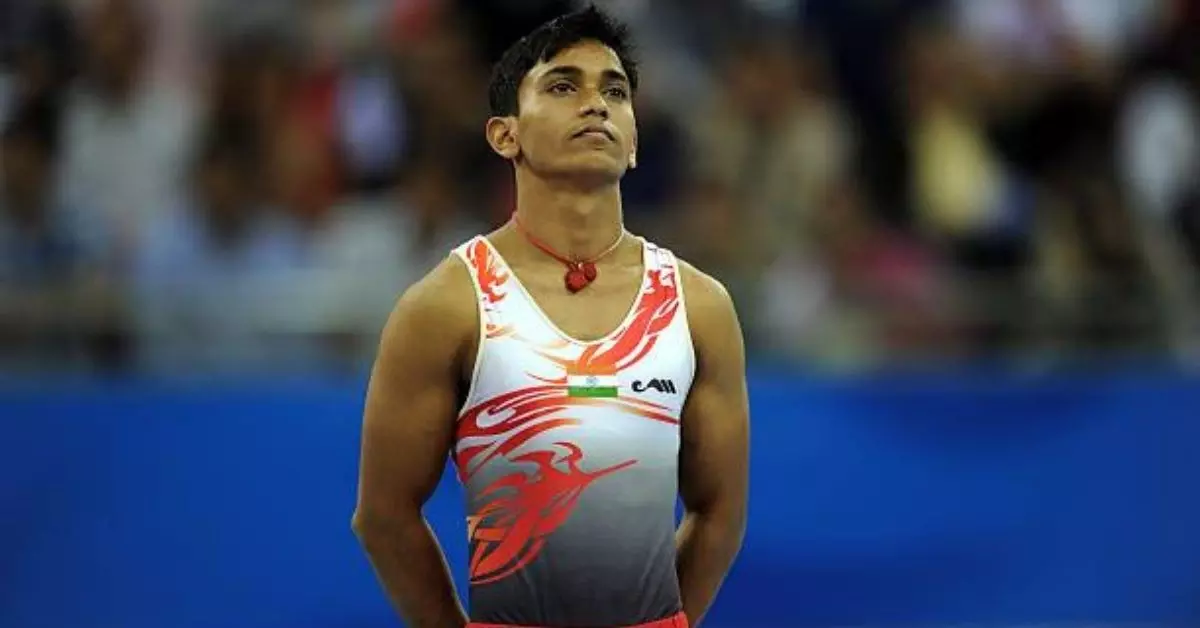Gymnastics
The de-recognition of GFI cost me 2012 London Olympics: Gymnast Ashish Kumar
The Bridge recently caught up with gymast Ashish Kumar for a chat wherein he spoke extensively about his childhood, the 2012 Olympic heartbreak and his future plans.

Ashish Kumar
A young Ashish Kumar shot to fame when he became the first Indian to clinch medals in Gymnastics during the 2010 Commonwealth Games in Delhi and the 2010 Asian Games in Guangzhou.
There was a lot of hype around him. He was expected to make it to the 2012 London Olympics and be a medal contender there. But none of it really materialised, and Ashish Kumar faded into relative obscurity.
The Bridge recently caught up with the 31-year-old gymnast for a chat wherein he spoke extensively about his childhood, the 2012 Olympic heartbreak and his future plans. Excerpts:
On his childhood and introduction to gymnastics
My father used to work in a different city with the Indian railways, while my mother was a homemaker. I was just four years old when I started gymnastics. A new gymnastics centre had opened in our city in 1993, and a senior gymnast there was my brother's close friend. Since I was a very hyper-active kid during that age, he asked my brother to enrol me in the gymnastics class there.
I hated it as a child. As a child, you like to stay at home more or less and not interact with people outside. In fact, I was scared when I first went into the centre and saw kids there just jumping and hanging here and there. I used to cry a lot while going to the training.
The training sessions used to be early in the mornings, and there we times when I used to bunk the session and just keep sleeping. There were times when my coach used to come to my house and drag me with him to training, and it did not matter what kind of clothes I was wearing (laughs). But, slowly and steadily, I started getting interested. This is how my entire childhood went by.
On the factors which affected his qualification to the 2012 London Olympics
It was a golden opportunity that I missed. I was in terrific form and had even won medals in the Commonwealth and Asian Games. If I have point out as to what went wrong, it would probably be the training routine. We had an overseas coach in Vladimir Chertkov, but the training was just not right. The training regime was more than what my body could take. Besides, there was a lack of recovery resources during the national camp before the Olympics. You cannot compete to your best potential if your body is fatigued in gymnastics. You cannot just train for four to six hours every day and not have a recovery period.
This led to a dip in my performance during the Olympic qualification event in Tokyo, and I fouled in three events, which is just not acceptable. Moreover, even luck seemed to have deserted me at this point in time, as I missed out on qualifying by just 0.7 points. One less foul, and I would have made it. This is something that still haunts me.
Further, I feel I did not have the federation to back me up properly then, as it was derecognised by the government. I was in contention for the Asian continental quota, but it was rather awarded to a gymnast from Bangladesh (Quazi Syque Caesar), who was and brought up in America. He decided to represent Bangladesh just for the Olympic quota.
In fact, I had even defeated him in the South Asian Championships in 2011, but the quota still went to him. It did hurt a lot at that point in time. I tried appealing here and there, but the fact that there was no one to take a stand for me meant that nothing could work out.
On what the Gymnastics Federation of India needs to do to ensure that no other gymnast suffers as he did
See, there have been a lot of problems with the GFI for a decade, from 2011 to 2021, and it harmed me a lot. It has been granted recognition by the Sports Ministry only in February 2021. I am thankful to the Sports Authority of India (SAI), which helped many other gymnasts and me by setting up camps for us and made sure that we even had some international tours.
The SAI did a lot, but having the federation could have been even better. Now that GFI has got the recognition, it needs to make sure that each and every gymnast gets a platform to grow. It also needs to ensure that the coming generation of gymnasts gets secured jobs with the government since a lot of the gymnasts come from a poor financial background. The federation is the backbone, and even without it, we have done well in the sport in recent times. Now just imagine how well India can do if it has a proper support system for gymnasts. This is where, I believe, the GFI needs to up their game.
On his future plans
I have worked a lot on my fitness in recent times. After the lockdown ended last year, I went to Ambala to train under my coach Manoj Rana and reduced around 4.5kgs of weight in a month. I am fitter than I ever was in my career. I am currently eyeing the 2022 Commonwealth Games in Birmingham and definitely not retiring anytime soon (laughs).
